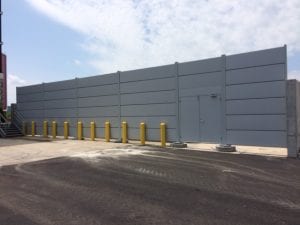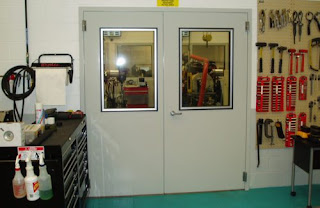Is a noise wall the best choice for noise reduction?
There is a growing demand for lessening noise in internal areas like homes, restaurants, and office buildings. Believe it or not, the type of material you use may have a relatively high impact on whether or not noise is dissuaded. One of the building types of materials that is subject to different kinds of options is a noise wall.
There are various reports that we will be covering in our new concrete fence wall post that have shown that any type of concrete just echoes the noise and can possibly enhance it. Nonetheless, there has been recent research that has shown that concrete and noise reduction wall panels offer the highest sound transmission loss value in respect to other noise wall products.
One feature of a concrete is that it can be manufactured and inspected before the installation, which can lessen yours or the construction timeline of a contractor. You will get a wide range of finishes and textures with concrete and double leaf door and as it is manufactured in a controlled ambiance, it is made with uniformity while maintaining top quality.
The reason it is able to adjust so conveniently to different construction situations is because noise barriers have a low water to cement ratio. By using this low ratio, higher strengths and low permeability can be accomplished.
While researching offline, you will get contradicting discussions over whether or not concrete and acoustic window inserts are the optimal material to use for noise reduction. There have been substantial arguments for both cases, but it is difficult to go against the research mentioned above. It is up to you to go for a conclusion whether or not concrete is the best option for noise reduction, and doing more research can support your decision better.




Comments
Post a Comment